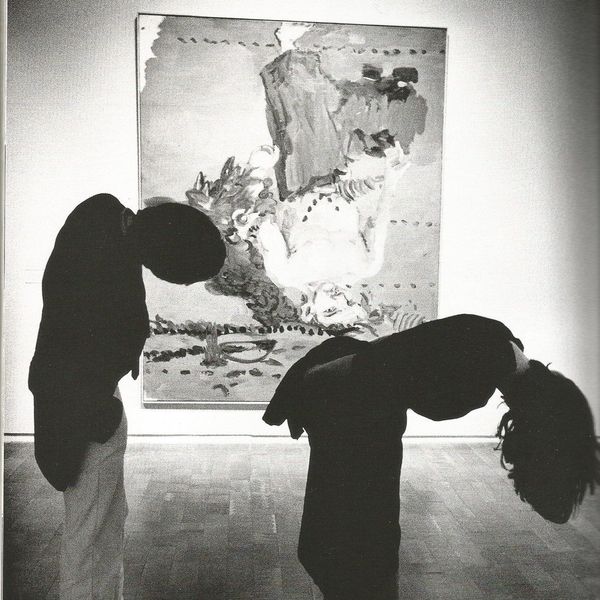A few words from an abstract artist.
You may be wondering exactly what abstract art is all about. These shapes, colors, lines, and whatever else that's thrown onto this canvas, how is it art? What does it mean? Usually no one is afraid to ask, sometimes in really rude or awkward ways, these questions that come to mind. So, today, I am going to give you some answers, as well as a few guidelines to make yourself seem a lot more cultured and help you appreciate abstract art a little better.
First thing's first, "What is it?"
This is a question that can easily be seen as offensive by some artists and lovers of art. Almost as though you were asking a toddler what their crayon scribbles meant, your question can come off as condescending. Obviously not on purpose, in most cases, but for some it can still seem like you are saying that their art is meaningless.
For myself especially, as well as other people who express themselves through abstraction, the canvas doesn't just hold paint and scribbles and splatter. The piece that we created has a piece of ourselves within the paints and pigments. We give every piece a small sliver of our soul. It's a pure expression of our emotions and thoughts and feelings without any of the confines or structure of traditional art. It is the purest way to express the deepest feelings.
So instead of asking what it is, ask how we were feeling when we made the piece, or ask why we chose the colors we did, or the medium. Maybe comment on how the piece makes you feel when you look at it, but don't ask what it is.
"Is that a butt?"
No. That is not a butt. I get it, it's funny to point out when lines, colors, or shapes appear to be silly objects. But no, I didn't spend a whole lot of time, effort, and money, to hide a butt in my painting. If you can't get past something trivial like that, just move on to the next piece and never go to a classical art exhibit with any nude paintings in it.
"I see this"
It's usually 100% okay to say that you see things in an abstract painting. I actually encourage it with my paintings. I love it when people say that they can see an eye, or a skull, or a dragon fly, or even a galaxy. It means that you are seeing what you need to see in the painting, and sometimes that even means that you're letting the painting talk to you.
"This isn't even art"
Yeah, even as an artist I feel this way sometimes. I hate some forms of contemporary art more than you can imagine. It's okay to not love a piece, but do try your best to give a piece a chance before you toss it aside. But if you're like me, and you just can't wrap your head around a black canvas painted on with black paint, or a white canvas painted on with white paint, don't feel bad. You're not alone.
"Wow, that's expensive!"
If you are ever in a gallery with prices attached to the pieces, never make comments about the price. Most times artists get their material costs, and less than minimum wage per hour for their work, unless they are able to churn out work rather quickly. So if a painting that took months to complete and lots of money to create at all, don't be surprised if it's $500-$1,000. I think you'd like to make more than a couple dollars if you spent an entire month or more at a job working around the clock. Also, remember abstract pieces can also take a long time to complete. Some of my paintings take weeks to complete because of my materials, and others are finished in just a couple hours. Don't assume that splattered paints aren't well organized.
"I could do that"
The final and most important thing I have to address. I will use my own work as an example for this, because it is what I know best. I create a form of abstract expression through spray paint. I use multitudes of techniques to organize and plan out my paintings so that they are all one of a kind. But, some people have dismissed my work as a bunch of spray paint dripped on a canvas and all just mixed together.
Yes, it is true that you could go buy $100 in spray paint and $50 worth of canvas and such, then buy a respirator and make your own spray paint art. But that doesn't mean that you've put years into developing your own style, developing knowledge of how paints and colors and consistencies work together, or how all the dry times influence how the paintings look when they're complete.
Unless you actually spent all the money, and tried it, you wouldn't realize how difficult it really is, and how hard it was for me to develop my style with no basis for example other than people like Jackson Pollock who used oil paints. So never assume you know better, or could do better, or could do exactly what someone else has done. Because as a great friend once told me, if you see a piece in a museum which makes you say "I could do that," you'll need to explain why you're not in a museum too.
I hope this helped anyone who has troubles understanding abstract art. And remember, you don't need to cry every time you see a Jackson Pollock, but at least know that the man was a genius.
Peace, love, and art!




















